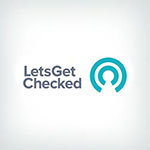Eating Well Without Being on a Diet
Guest Post by Dan Chojnacki
The health and wellness industry continues to have a significant impact on society. Figuring out how and what we should eat is the subject of endless debate. You've probably heard of the keto diet, the macro diet, the Mediterranean diet, or the South Beach diet — they all promise better health.
How does a person decide what diet will work for them? Is it the best diet for them, or would another one be better? Will it give them the results they’re looking for? Breaking news: You don’t have to diet to be healthy or reach your goals!
People dealing with a medical condition may need to follow a specific diet to maintain their health. For those of us not under a doctor’s care, however, our best bet is to try healthy eating.
“Healthy” is a term that can mean different things for different people. Our bodies are all unique in their exact needs, so what is healthy for one person might not be healthy for another. Despite this, we all share many common needs when it comes to nutrition. So let’s take a look at some of the obvious (and not so obvious) choices we can make to eat well, sans diet.
Cut out the junk

No one’s going to be shocked to learn that pizza, burgers, and fried foods won’t make the list of today’s best diets. For those trying to improve their health without a specific diet, there’s no excuse for junk food.
Whether you’re following a plan or not, the first step toward eating well is to remove or cut back on the foods we know are unhealthy. Of course you can indulge in your favorite foods on occasion. Don’t be that guy who gets bummed when there’s no cauliflower pizza at the kid’s birthday party. At the same time, don’t be the guy making junk food a part of your daily menu. That will lead to many problems.
Most people know which foods they should avoid when trying to eat well. For those with questions, there are plenty of resources available to help you make the decision. When in doubt, ask yourself if this food will benefit your body, or just satisfy a craving.
Figure out your daily needs

It’s not a universal rule that everyone needs to count calories. However, knowing the number of calories your body requires will help you be mindful of what you’re eating.
You don’t have to keep an exact log all day, every day. But it’s important to be aware of whether you are overeating or undereating to stay healthy.
Calorie counting can also help you decide what types of foods you want to eat. For example, if you know that three slices of pizza will take up 800 of the 1,800 calories your body needs in a day, you might rethink your decision and opt for something healthier.
People’s specific calorie needs vary due to several factors. You can find dozens of calorie calculators online to give you a rough estimate of what you need in a day. If you’re looking for something more exact, consider seeing a dietician.
Keep your portions under control

Portion control is one area of eating well that can’t be stressed enough. Even healthy food can be unhealthy for our bodies if we eat too much of it.
Let’s use almonds, for example. They contain healthy fats that are good for our hearts. However, a handful of almonds can contain around 200 calories. It’s easy to overindulge quickly when you don’t know things like that.
Here are two tips I like to give my clients when thinking about portion control and healthy eating:
- Use a smaller plate when eating meals. Most of us fill our plates to the max when we see delicious food. If there is less room on the plate, then our portion size is automatically smaller (as long as you don’t go back for seconds or thirds).
- Try to stick to one helping of a meal. There is a delay between our brain and our stomach when it comes to feeling full. We might be full after our first helping, but our brain hasn’t received that signal yet. Try waiting 10–15 minutes after your first helping before deciding if you need to go for seconds.
Plan your meals in advance

Now before you start to think this is beginning to sound like a diet, I promise you it’s not. Many diets do ask you to plan or prepare your meals in advance. But these diets usually have specific meals for you to follow.
Knowing what you’re going to eat in advance helps you avoid giving into cravings or taking an easy way out when it comes to cooking a meal. This is not a specific diet. It’s simply a plan for your meals to contain the foods of your choice.
This is also a great way to save time. Many of our poor eating choices happen when we’re in a hurry. We feel like we don’t have time to even think of what we should make to eat, let alone cook it. So mapping out your meals and having them ready eliminates your excuse to make an unhealthy choice because of time.
Yes, you can eat healthy without dieting
The word “diet” has a bad reputation, and often leaves a bad taste in our mouths. It conjures up thoughts of carb-cutting, kale salads, and day after day of boneless, skinless chicken breast.
Newsflash: the word “diet” can simply refer to what you’re eating.
Everything you eat is part of your diet. For that reason, you can eat nutritiously without giving your diet a specific name. By focusing on healthy foods, calorie needs, and portion sizes, you’ll be well on your way to cleaning up your diet without being on one.
Dan Chojnacki writes for QuickQuote.com and has been a certified personal trainer (NETA) for nearly a decade. He currently trains in Green Bay, Wisconsin, where he is also a group fitness director. In his free time, he enjoys running, swimming, playing tennis, and coaching youth softball.
The Top Men's Health and Wellness Companies


The Top Men's Health and Wellness Companies


Related Articles
Men's Health and Wellness
5 Benefits of Couples Working Out Together
April 26th, 2023
Men's Health and Wellness
Finasteride for Hair Loss: What Is It and How Does It W...
Men's Health and Wellness
Men's Guide to Pregnancy: What to Know
Get Our Newsletter - Be in the Know
Sign up below to receive a monthly newsletter containing relevant news, resources and expert tips on Men's Health and Wellness and other products and services.
We promise not to spam you. Unsubscribe at any time. Privacy Policy
